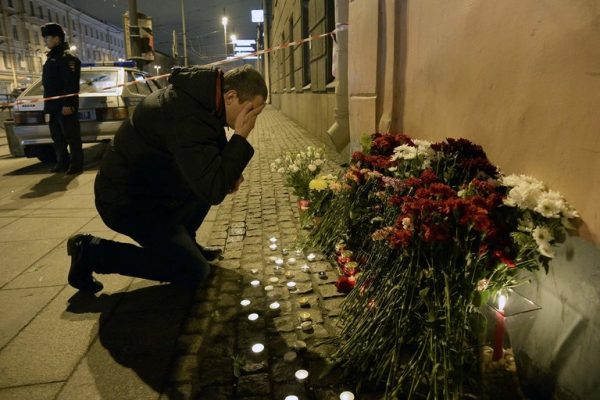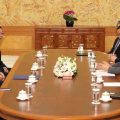
ST. PETERSBURG, Russia — A native of Kyrgyzstan who had Russian citizenship is believed to be responsible for the deadly blast in St. Petersburg that killed 11 people and wounded more than 50, including children, the Kyrgyz authorities said in a statement on Tuesday.
The suspect was identified as Akbarzhon Dzhalilov, born in 1995 and a native of Osh, the authorities said in their statement, which cited “preliminary data” and said that officials were cooperating with the Russian security services.
The announcement left many other issues unresolved, including whether the authorities believed Mr. Dzhalilov had acted alone or in concert with others, whether he had any ties to Islamic or other militant groups, or even whether he survived the attack.
The news website Fontanka.ru reported that Mr. Dzhalilov was 22 and had been living in St. Petersburg for more than six years.
The explosion, which ended a lull in terrorist attacks on Russia’s main urban centers, came midafternoon on Monday and rocked the third car of a metro train.
The blast occurred just as the train departed the Sennaya Square station, one of the busiest transportation hubs in central St. Petersburg, Russia’s second-largest city. The train was able to reach the next station, the Technology Institute, where the full extent of the carnage became clear.
Fifty-one people were hospitalized after the blast, according to an updated list of casualties released by the Ministry for Emergency Situations. The toll could have been much higher: A second bomb, disguised as a fire extinguisher, was found at a nearby station, but it was disarmed. Security was increased at major transportation facilities across Russia, including the Moscow Metro.
Kyrgyzstan is a small, landlocked, predominantly Muslim nation in Central Asia, and it is a source of many migrant workers in Russia. The authorities in Central Asia have previously said that hundreds of people there had left to join the Islamic State militant group in the Middle East, and the Islamic insurgency in the Northern Caucasus has also provided thousands of fighters.
The Russian authorities have long feared that radicalized militants from Central Asian nations, who can travel freely to Russia, might carry out attacks. Many Russian nationalists have argued for the introduction of visa requirements for countries in Central Asia, but the Russian government has sought to avoid doing so in the interest of preserving good relations with the former Soviet states.
Central Asians from the former Soviet states fill many of the menial jobs in the Russian economy, from construction workers to restaurant workers to taxi drivers, and the debate about their role often echoes one about Hispanic immigrants in the United States.
In deploying the Russian military to Syria in September 2015, President Vladimir V. Putin said it was intended to fight militants there before they could return to carry out attacks in Russia. Thus far, the military has mostly concentrated on shoring up President Bashar al-Assad of Syria rather than on attacking the Islamic State, however.
There has been no claim of responsibility for the attack on Monday, although Russian militants in Syria have threatened reprisals back home. In a video posted on YouTube in July, a masked man driving across a desert landscape warned, “Listen, Putin, we will come to Russia and kill you at your homes.”
The attack in St. Petersburg came while Mr. Putin was in the city for a meeting with Alexander G. Lukashenko, the president of Belarus and a traditional ally who has recently feuded with the Kremlin.


